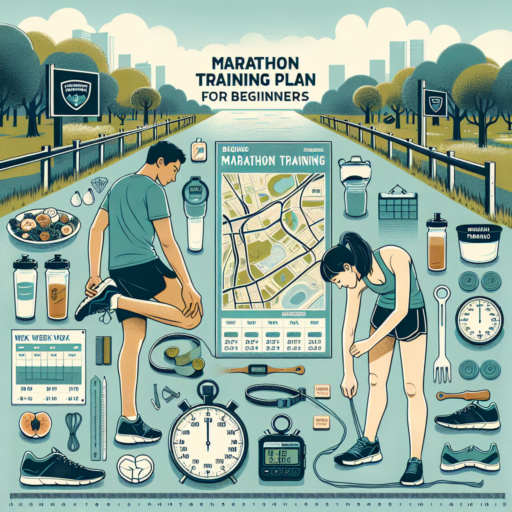How to go from 10k to marathon?
Transitioning from a 10k race to running a full marathon is a journey that requires dedication, careful planning, and a strategic approach to training. Going the distance from 10 kilometers to 42.2 kilometers is no small feat, but with the right mindset and preparation, it’s certainly achievable. Here are some key steps to help guide your marathon training journey.
Develop a Gradual Training Plan
A gradual increase in your running mileage is essential to avoid injury and build endurance effectively. Start by adding small increments of distance to your weekly long run, ensuring that you do not increase your total weekly mileage by more than 10%. This slow and steady approach helps your body adapt to the increased demands of marathon running without overwhelming it.
Incorporate Strength and Cross-Training
Building strength in muscles that running doesn’t target as intensively can be crucial for a successful marathon. Incorporate strength training exercises and cross-training activities like cycling or swimming into your routine. These workouts can improve your overall fitness and help prevent running-related injuries by building strength in your core, legs, and arms. A well-rounded fitness regimen is key to carrying you through the marathon’s challenging distance.
Focus on Nutrition and Recovery
As you increase your mileage, paying close attention to your nutrition and recovery becomes increasingly important. Ensure your diet includes a good balance of proteins, carbohydrates, and fats to fuel your longer runs. Hydration is also critical, so keep your water intake high, especially after long runs. Additionally, incorporate rest days into your training schedule to allow your body to recover and adapt to the increased physical stress. Proper sleep and muscle recovery techniques, such as stretching, foam rolling, or even massage therapy, can significantly improve your training outcomes.
How long should a beginner train for a marathon?
When embarking on the journey to train for a marathon, beginners often find themselves asking, «How long should I train to prepare adequately for this 26.2-mile challenge?» The answer isn’t one-size-fits-all, but typically, a beginner should dedicate anywhere from 16 to 20 weeks to properly train for a marathon. This timeframe allows not only for the buildup of physical endurance but also for mental preparation and the necessary recovery time to prevent injuries.
Building Up Gradually
Training for a marathon is not about pushing your limits from the get-go but rather about gradually increasing your mileage and endurance. This approach helps to build a solid running foundation while minimizing the risk of overtraining or suffering from preventable injuries. Beginners should focus on slowly enhancing their weekly mileage, adding no more than 10% more distance each week. This methodical increase gives the body ample time to adapt and strengthen in response to the demands of longer distances.
Incorporating Variety into Your Training
A comprehensive marathon training plan for beginners should include more than just long runs. Incorporating a variety of workouts—such as speed work, hill training, and cross-training activities—is crucial for building endurance, improving speed, and keeping the training process engaging. Variety not only prevents boredom but also ensures that all muscle groups are being evenly conditioned, which is key to a well-rounded and injury-free marathon training experience.
By adhering to a structured training plan that progressively increases in intensity and incorporates a mix of training methods, beginners can effectively prepare for their first marathon within the advised 16 to 20-week timeframe. This preparation period is critical not only for developing the physical endurance required to complete a marathon but also for fostering the mental and emotional resilience needed to face the challenges of marathon running head-on.
How many months should you train for your first marathon?
Preparing for your first marathon is an exciting challenge that requires dedication and a well-thought-out training plan. The amount of time needed to train adequately can vary significantly from runner to runner, depending on their initial fitness level, running experience, and personal goals. However, a common recommendation for new marathoners is to allow themselves at least 4 to 6 months of consistent training before tackling the 26.2 miles. This time frame is considered optimal for building endurance, strength, and mental resilience, while also minimizing the risk of injury.
Within this training period, it’s essential to progressively increase your mileage at a manageable pace. Beginning with shorter distances and gradually adding longer runs allows your body to adapt to the increased physical demands of marathon running. Most training plans include a mix of run types, such as long runs, recovery runs, and speed work, which are crucial for improving your overall marathon performance. This balance ensures that you’re not only building endurance but also enhancing your running efficiency.
Aside from the physical aspect, preparing for a marathon also involves mental preparation. The months leading up to the race are an opportune time to develop strategies for overcoming mental fatigue and maintaining motivation throughout the marathon. Incorporating rest days and cross-training activities into your routine is equally important to help prevent burnout and improve your physical fitness without overstraining your body. Listening to your body and allowing for adequate recovery is paramount in ensuring you make it to the starting line in the best shape possible.
No se han encontrado productos.
What is a good marathon strategy for beginners?
Embarking on your first marathon is a thrilling adventure, yet it can also be daunting without the right approach. A good marathon strategy for beginners revolves around three key elements: sustainable pacing, consistent training, and proper nutrition. Understanding and implementing these elements can make your marathon experience not only manageable but enjoyable as well.
Sustainable pacing is vital for marathon success, especially for beginners. Starting too fast can lead to exhaustion and may prevent you from finishing the race. It’s essential to start at a pace that feels easy and maintain it for the first half of the marathon. This conservative approach allows you to reserve energy for the second half, where you can gradually increase your pace if you’re feeling strong.
Consistent training is the backbone of a good marathon strategy. A beginner’s training plan should gradually increase in distance, giving the body ample time to adjust to the demands of long-distance running. Incorporating rest days and lower-intensity training weeks is crucial to prevent overtraining and injuries. Additionally, beginners should focus on building a strong aerobic base through long, slow runs, complemented by some speed work to improve overall fitness.




